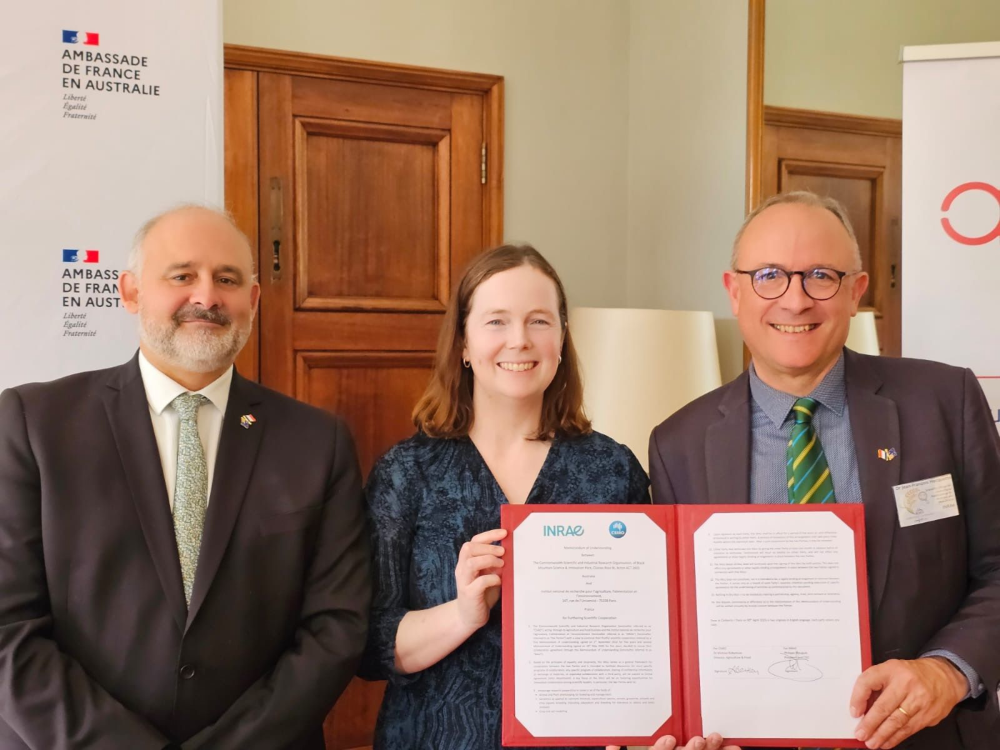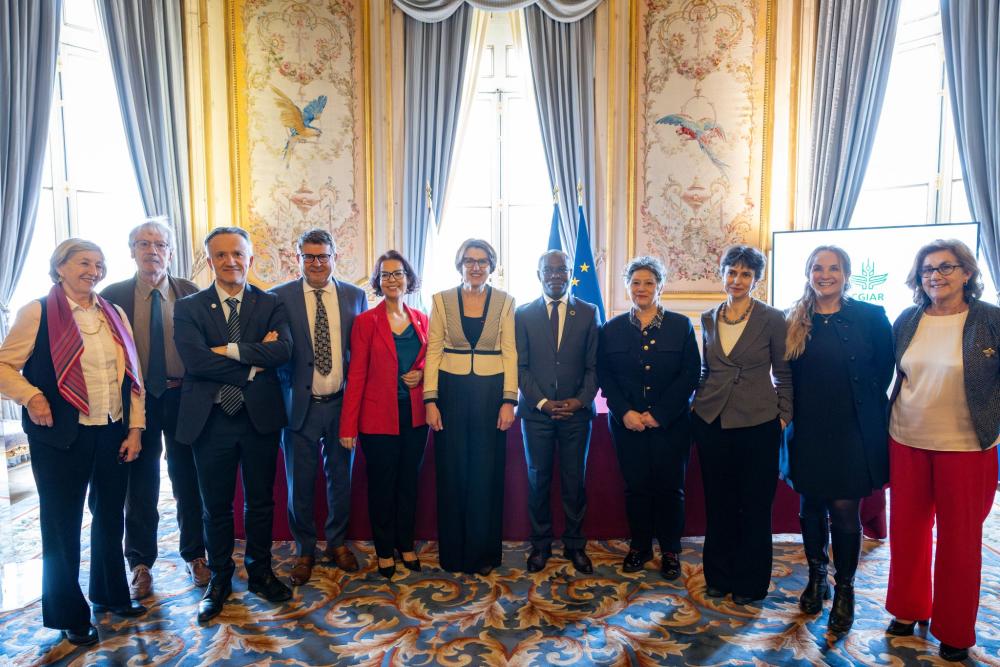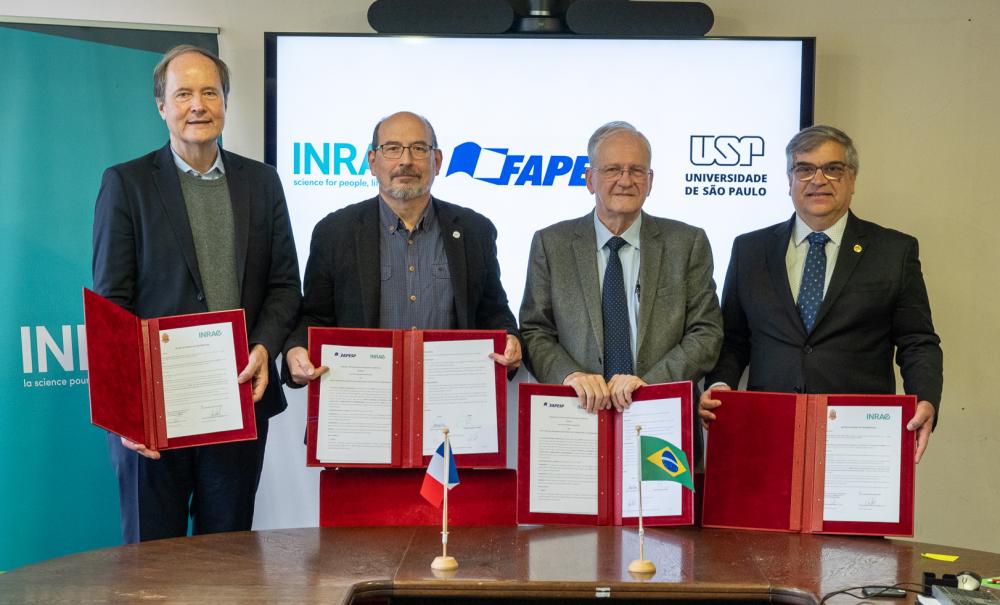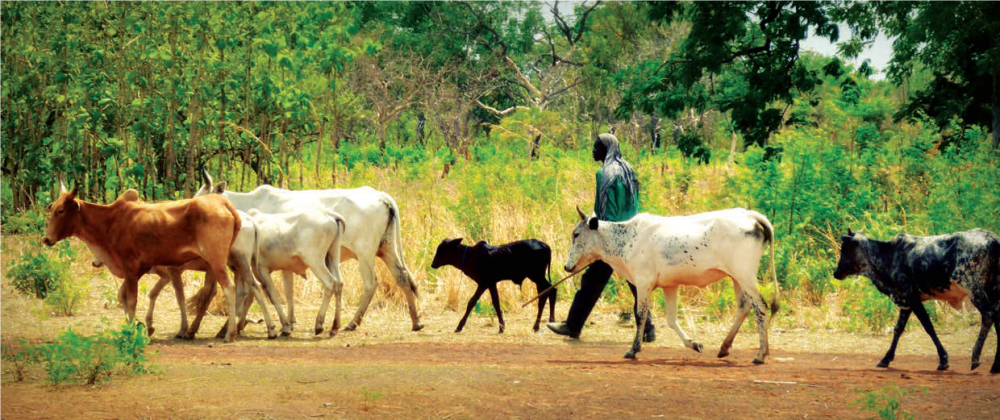International

Contributing to the Sustainable Development Goals of the United Nations 2030 Agenda
INRAE’s numerous publications in the fields of agriculture, food and the environment have placed the institute among the world’s top contributors to research related to several of the 17 Sustainable Development Goals (SDGs) of the UN’s 2030 Agenda:
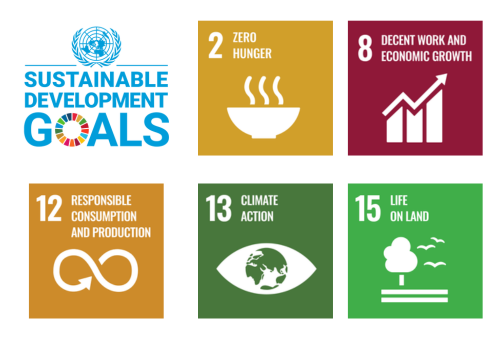
SDG 2: End hunger, achieve food security and improved nutrition and promote sustainable agriculture
SDG 12: Ensure sustainable consumption and production patterns
SDG 13: Take urgent action to combat climate change and its impacts
SDG 15: Protect, restore and promote sustainable use of terrestrial ecosystems
INRAE also collaborates on research on the SDGs with international organizations: with several United Nations agencies, including the Food and Agriculture Organization (FAO), the World Health Organization (WHO), the United Nations Educational, Scientific and Cultural Organization (UNESCO), and other intergovernmental organizations, such as the World Bank, the Organisation for Economic Cooperation and Development (OECD) and the World Organisation for Animal Health (WOAH). The Consultative Group on International Agricultural Research (CGIAR) is INRAE's second academic partner outside Europe, after the Chinese Academy of Sciences (CAS).
INRAE co-publishes with over 170 countries
The Institute's international co-publications with at least one foreign research organization represent more than half of INRAE's publications. These co-publications have grown strongly in recent years, reflecting the increasing internationalization of the research topics addressed by INRAE. The map below highlights the intensity of our international collaborations, with more than 170 countries involved to date.
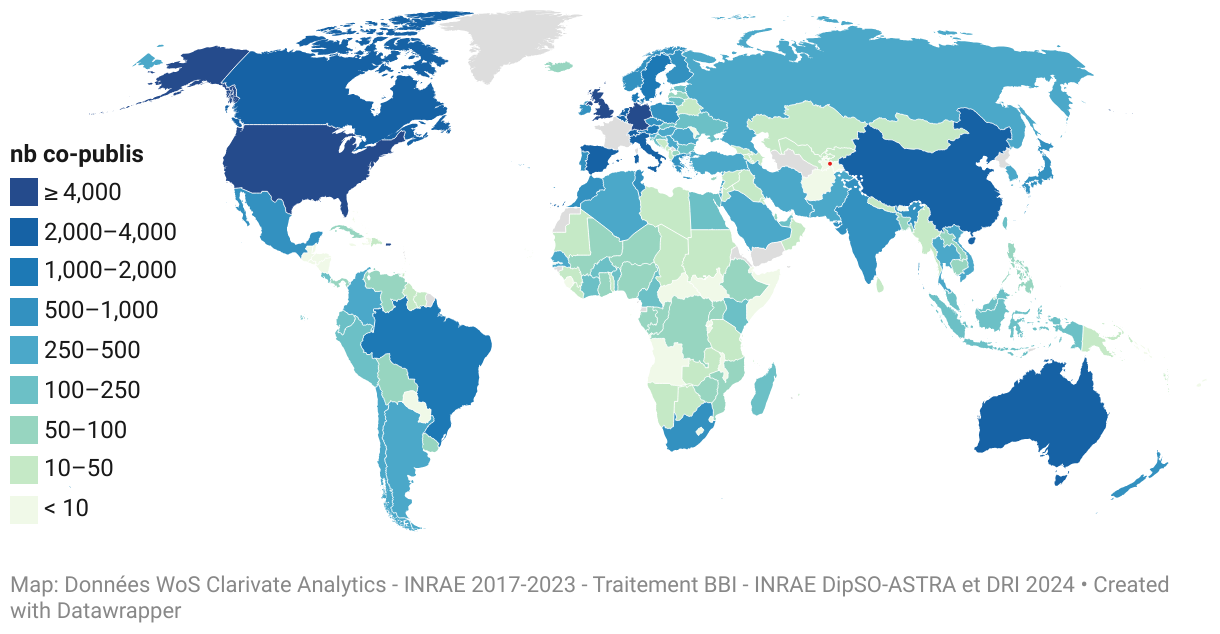
Strengthening our partnerships: the latest agreements
A global network of partnerships with leading universities and research organizations
INRAE assists its scientific teams in structuring essential partnerships using long-term cooperation instruments (5 to 10 years) supported by the Institute.
- International associated laboratories (LIAs) are laboratories "without walls" that bring together a foreign partner, one or more INRAE research units and partners from higher education or other French organizations to implement joint projects of excellence;
- International research networks (2RIs) bring together a larger number of institutions from one or more partner countries;
- Joint Linkage Calls (JLCs) are cross-mobility projects for young researchers, which enable new collaborations to emerge within the framework of agreements signed with research organizations, sometimes with the support of funding agencies.
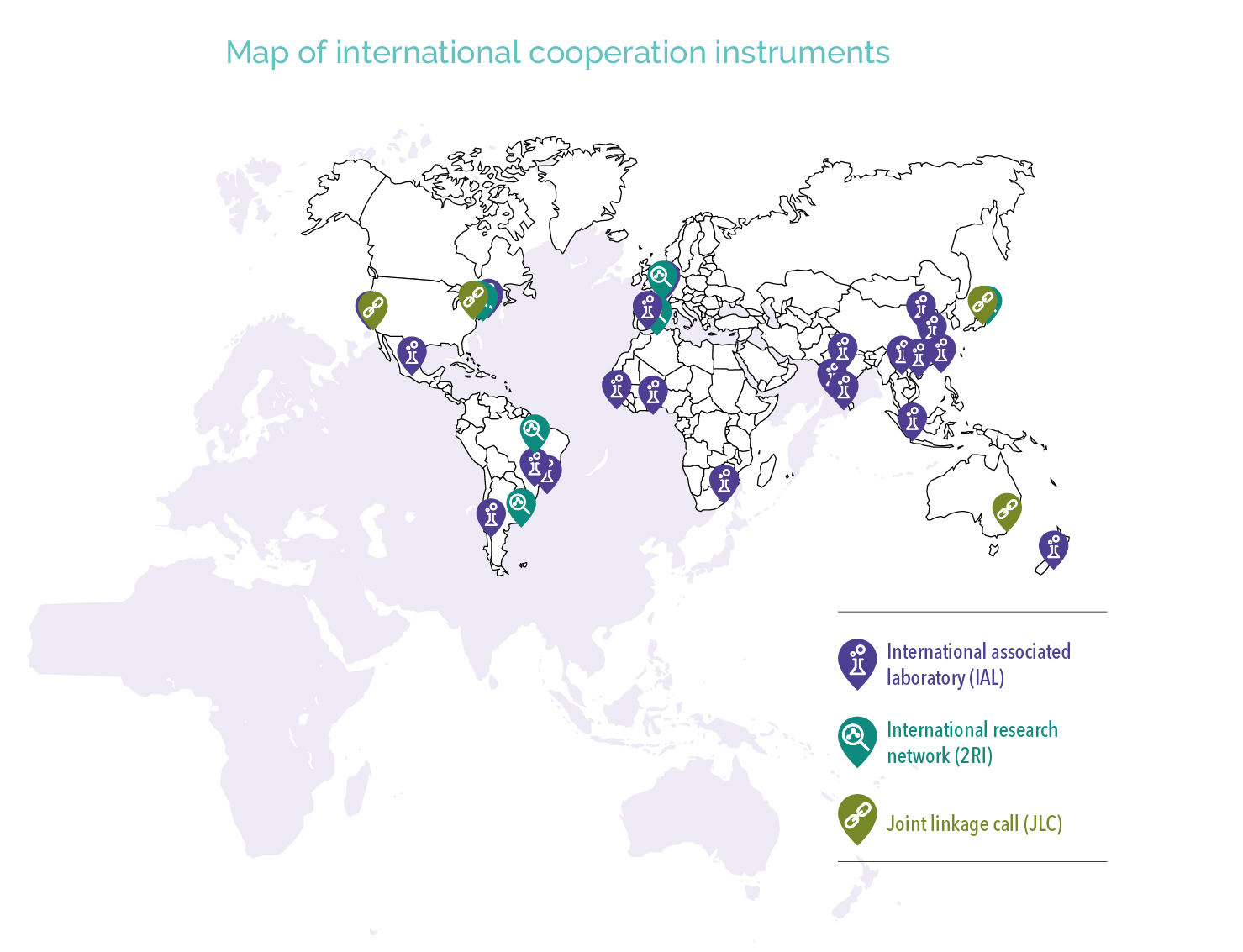
A driving force for international research initiatives
INRAE helps coordinate and supports intergovernmental research initiatives such as the Global Wheat Initiative and the Global Research Alliance, as well as international research programmes such as AgMIP.
The Institute is also a driving force behind proposals for International Research initiatives (IRI), in line with its INRAE 2030 strategic roadmap. The aim is to work with scientific partners to mobilize national, European and international efforts to build a research agenda, and then to support ministries in the development of international initiatives including a research pillar.
6 dynamics for international research initiatives
Soils and Climate Change
Launched in 2018 as part of the 4 per 1000 initiative on 'soils for food security and climate', this programme has been developed through several European projects (CIRCASA, FACCE JPI, EJP soils) and has led on November 2023 to the launch of an international research consortium on organic carbon in soils (Soil Carbon IRC) through the Horizon Europe ORCaSa project launched in November 2022.
Emerging diseases - zoonoses
This IRI led to the development of the PREZODE (PREventing ZOonotic Disease Emergence) initiative with CIRAD and IRD. This international initiative, launched at the One Planet Summit in January 2021, is science-based and aims to limit the risks of emergence of diseases of animal origin through prevention and early detection. It is part of a One Health approach.
Microbiomes and global health
It is based on two European projects (Microbiome Support CSA and CSA International Human Microbiome CSA) and the InterAcademic group Microbiome at international level. The aim is to mobilize microbiome sciences at an international level to build a strategic research agenda centred on the food-microbiota-host links as a major lever for action in terms of human health. Two initiatives are being developed: the European Microbiome Centers Consortium (EMCC) and the World Microbiome Partnerships (WMP).
Agroecological crop protection
With a first project (ACROPICS), the initiative (ACPI) is creating an international research, innovation and capacity-building network to develop agroecological crop health strategies, promote biological regulation in and around agroecosystems, reduce the use of pesticides and act on the levers that contribute to agricultural sustainability.
Agroecological and food transition under water stress
The aim of this dynamic is to build long-term networks of international partnerships to co-construct interdisciplinary research questions at the interface between (1) the challenges of agroecological transitions, (2) sober management of water resources, and (3) healthier and more sustainable food systems; as well as to work collectively on the concept of a Territorial Innovation Laboratory - LIT. It began in 2020 with Algerian and Tunisian partners, then became part of the TSARA initiative with the MAHDIA project and could be extended to other partners around the world, such as India.
Forests:
- The One Forest Vision initiative (OFVi) launched at the 'One Forest Summit' (Libreville, March 2023), concerns the conservation of tropical forests in the Congo Basin, with a view to developing integrated research for transparent monitoring of forest degradation, carbon stocks and tropical biodiversity.
- Adapting forests and agroforests to climate change: a reflexion has been conducted on the impacts of climate change on forests and ways of adapting, taking into account uncertainties about the future climate, forest management and the diversity of forest ecosystem services.
Contact us for more information: international@inrae.fr

